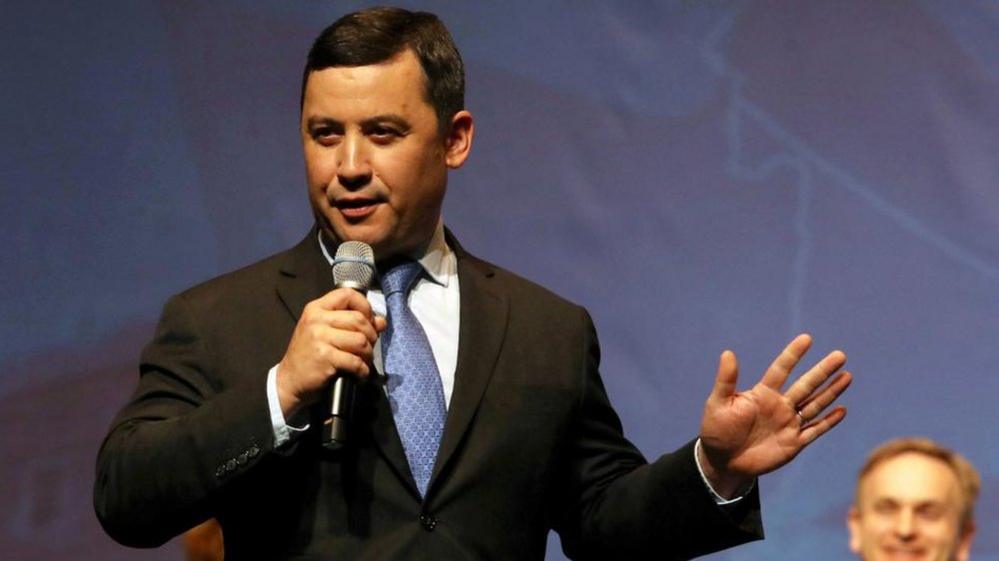Trudeau appears at inquiry into foreign meddling in Canada elections
- Published
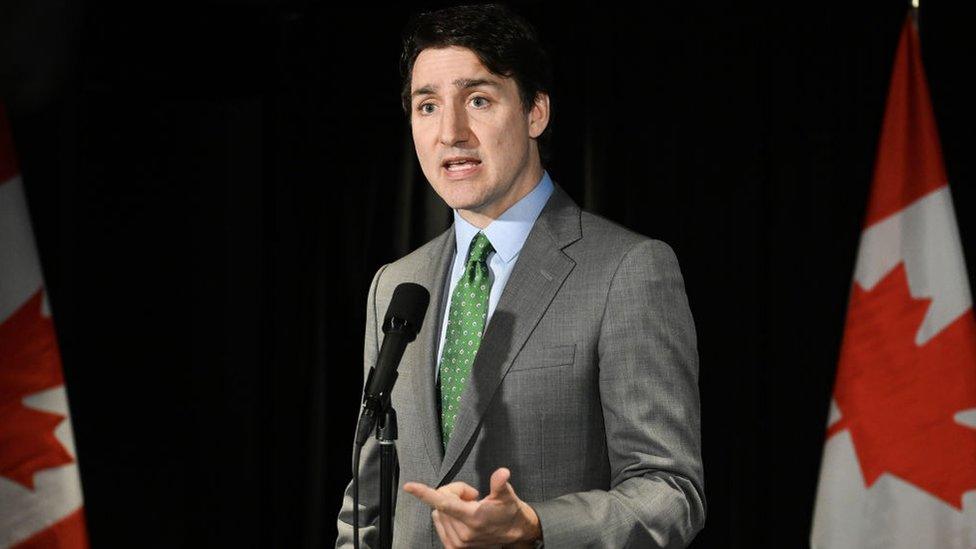
Prime Minister Justin Trudeau will be testifying before the inquiry on Wednesday
A busload full of Chinese high school students coerced into voting for a Liberal candidate. An opaque cash injection of thousands of dollars from China. A proxy agent of India's government providing illegal financial support to pro-India politicians.
These allegations and more surfaced during two weeks of testimony in Canada's ongoing public inquiry into foreign interference in its elections.
Prime Minister Justin Trudeau is testifying on Wednesday before the commission.
The accusations heard so far - which were made by Canada's spy agency in a series of redacted documents provided for the inquiry - are to be taken with caution, officials said.
The reports may include uncorroborated information that is single-sourced or incomplete, and that has not been properly investigated, the Canadian Security Intelligence Service (CSIS) warned.
China and India have repeatedly denied any allegations that they are among the countries that have interfered in Canada's affairs - with India recently calling them "baseless allegations".
But some politicians have said interference may have affected their political careers.
And testimony from members of Canada's varied diaspora communities shone a light on alleged threats to their safety by agents tied to governments in their home countries.
The inquiry, led by Quebec judge Marie-Josee Hogue, is hearing from more than 40 community members, politicians and federal election officials before its first report is published next month.
Those affected by the alleged meddling efforts have accused officials and CSIS of not doing enough to combat it, or of keeping them in the dark altogether.
And Canada's own spy agency has said the government is not doing enough to tackle the issue, and that the country lags behind its "Five Eyes" intelligence allies - the US, UK, Australia and New Zealand.
Mr Trudeau - whose Liberal Party won the last two federal elections in 2019 and 2021 - came under pressure to set up the inquiry after allegations of foreign interference emerged from leaked intelligence in Canadian media.
Last week he sidestepped reporters' questions about the purported meddling, simply saying the issue was "extremely important" and that he looked forward to testifying on Wednesday.
What has the inquiry heard so far?
From testimony and partially unsealed classified documents, Canadians have learned some of the ways China and other foreign governments may have attempted to interfere in those two elections.
There is no evidence the results of the election were affected.
CSIS has alleged that the Chinese government "clandestinely and deceptively" interfered in both elections.
The interference was "pragmatic in nature and focused primarily in supporting those viewed to be either 'pro-PRC' (Peoples' Republic of China) or 'neutral' on issues of interest to the PRC government," said a briefing by the agency.
"We also observed online and media activities aimed at discouraging Canadians, particularly of Chinese heritage, from supporting the Conservative Party (and former) leader Erin O'Toole," the briefing note added.
Mr O'Toole testified last week that his campaign was marred by a deluge of misinformation that he believes lost his party up to nine seats in the 2021 election.
He said that, while the overall result of the election - which his party lost to Mr Trudeau's Liberals - was not affected, he believes it led to his ouster as leader.
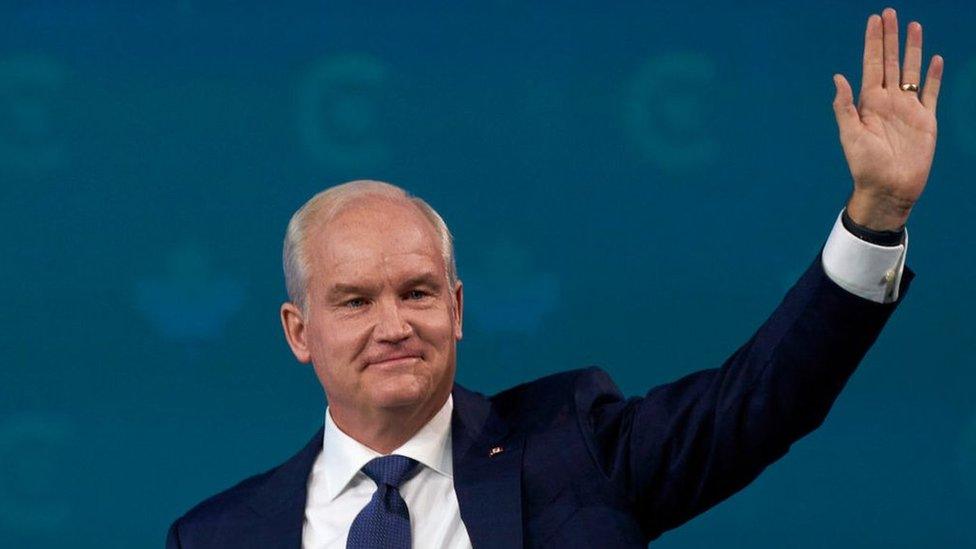
Former federal Conservative leader Erin O'Toole testified that his party may have lost some seats in the 2021 election due to foreign meddling
CSIS reports mentioned a possible C$250,000 ($184,000; £145,300) funnelled from China during the 2019 election to an unnamed candidate's staff member, and then to others, in a meddling attempt.
The spy agency also accused China of funding a charter bus in 2019 to send Chinese private high school students to help a Liberal politician, Han Dong, secure his party's nomination.
CSIS suggested that the students were coerced, that "their student visas would be in jeopardy and that there could be consequences for their families back in the PRC" if they did not support Mr Dong.
In his testimony, Mr Dong, who now sits as an independent, said he met with Chinese students and encouraged them to register as Liberal members during his campaign.
But he denied knowledge of anything nefarious. International students are allowed to vote in Liberal party nominations as long as they can prove they live in the riding (constituency or electoral district).
India and Pakistan also were named by CSIS as trying to interfere in both elections.
In India's case, the spy agency said activities were carried out by a proxy agent of the Indian government, and "were centred on a small number of electoral districts" to support pro-India candidates.
They were motivated by the perception that "a portion of Indo-Canadian voters were sympathetic to the Khalistani movement or pro-Pakistan political stances," CSIS reported.
Mr Trudeau previously accused India of being involved in the murder of Hardeep Singh Nijjar, a Sikh separatist who was killed on Canadian soil in June 2023.
Meanwhile, Pakistan's attempted meddling was allegedly "to counter India's growing global influence," though it was limited in nature, CSIS reported.
According to testimony, while CSIS and other officials knew about these allegations, they didn't alert the targeted politicians or the public.
Mr O'Toole said he raised concerns about meddling during the 2021 election and was not taken seriously.
But Mr Trudeau's national security advisor Nathalie Drouin, who was on a panel of top bureaucrats at the time tasked with reviewing election threats, countered by saying there was not enough proof at the time of China's activities against the Conservative Party.
"There was some risk that any intervention by the panel could create more harm than good," she said, adding there were fears that it would incite confusion and alarm the public.
Related topics
- Published13 September 2023
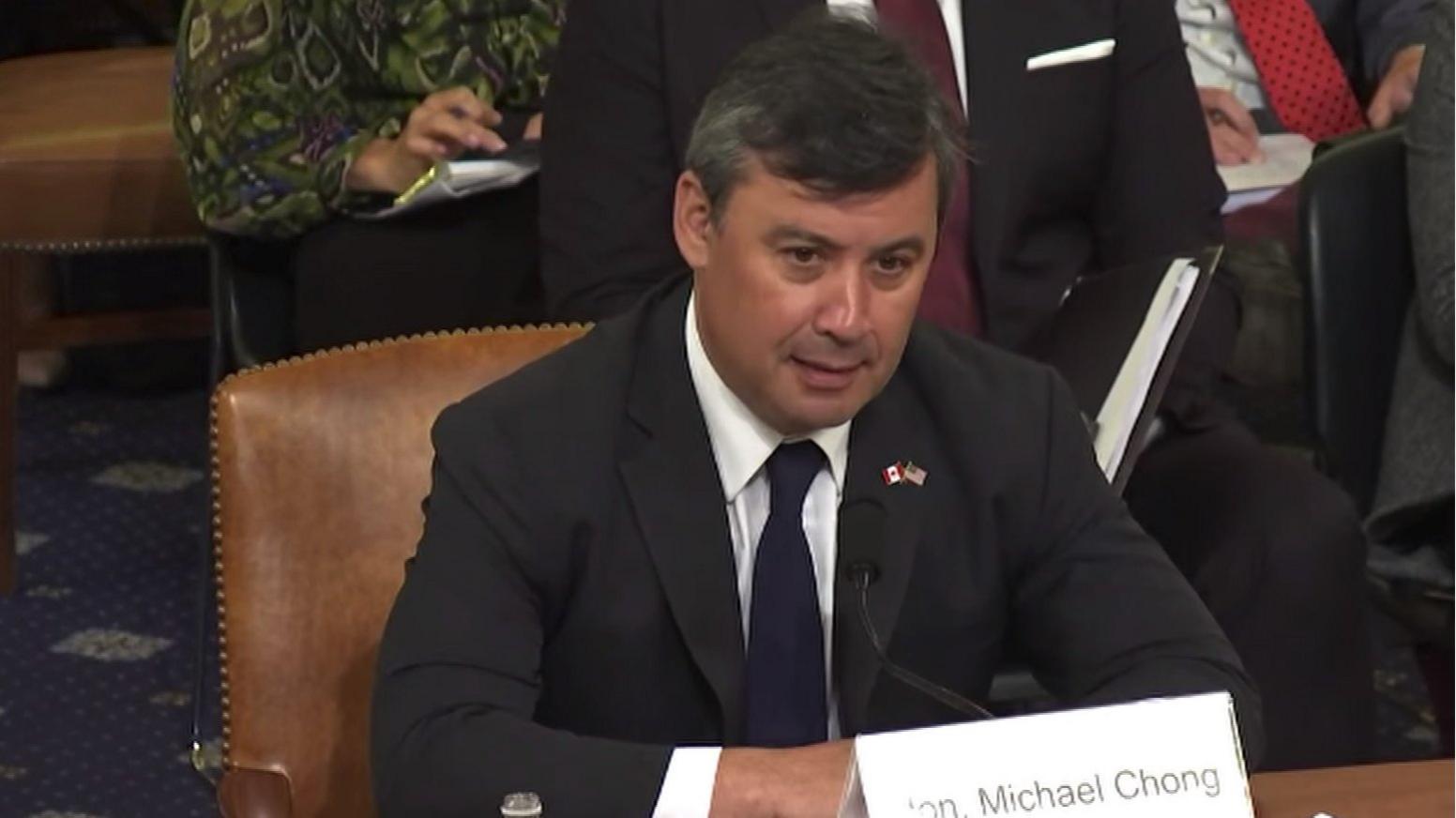
- Published7 September 2023
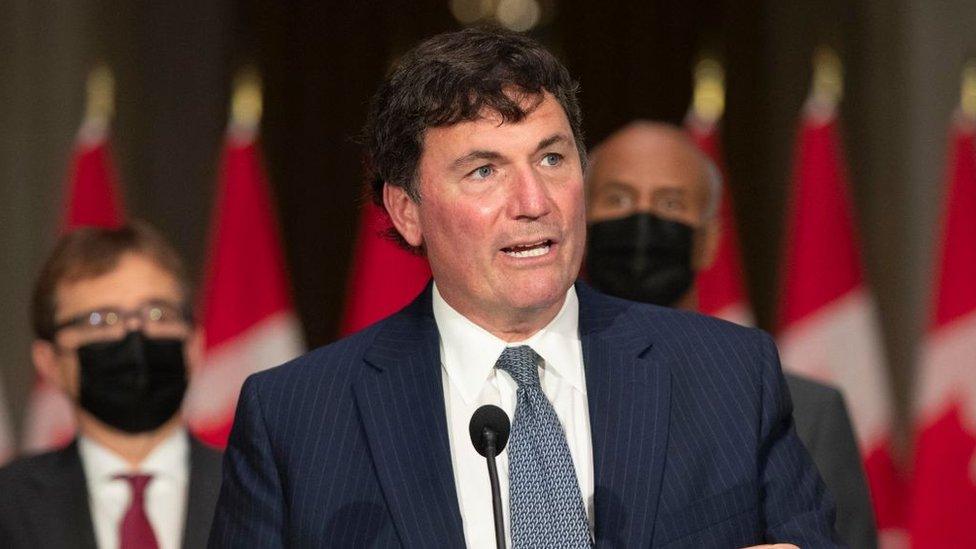
- Published13 June 2023
